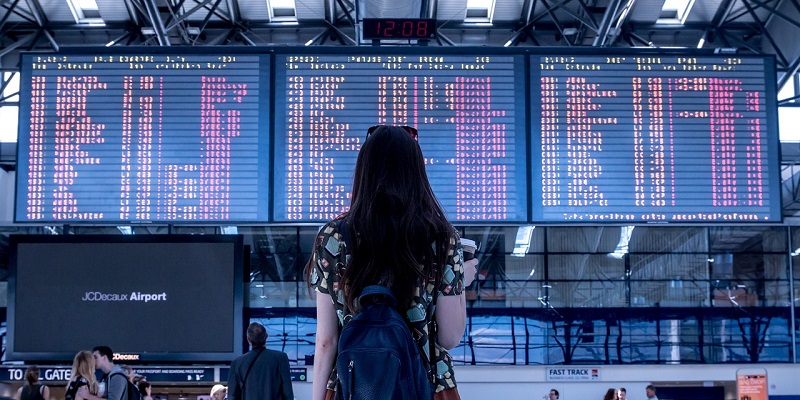The travel industry has undergone a significant transformation with the integration of artificial intelligence (AI), revolutionizing the way travel brands operate. AI has become a powerful tool that enables the processing and analysis of vast amounts of data, allowing travel companies to predict travel demand, adjust pricing accordingly, and provide hyper-personalized customer experiences. Furthermore, AI is being employed to analyze social media images and identify emerging travel preferences, helping travel brands stay ahead of changing trends. In this article, we explore the various ways AI is shaping the future of travel and revolutionizing the industry.
Predicting and adjusting travel demand with AI
One of the key applications of AI in the travel industry is predicting travel demand and adjusting pricing accordingly. With the ability to process and analyze enormous amounts of data, AI algorithms can accurately forecast travel patterns, allowing travel companies to optimize their pricing strategies. By leveraging historical data, market trends, and even weather patterns, AI can make precise predictions about travel demand in specific destinations. This enables travel brands to adjust prices dynamically, ensuring optimal profitability while meeting consumer needs.
Analyzing social media images for travel preferences
The rise of social media has provided travel brands with a treasure trove of data. AI technology can analyze the images posted on various platforms to identify emerging travel preferences among travelers. By analyzing patterns and gathering insights from social media, travel companies can tailor their offerings to match these preferences, ensuring their customers have truly personalized experiences. From the aesthetic preferences of accommodations to popular attractions and hidden gems, AI-powered analysis of social media images empowers travel brands to stay relevant and meet the ever-evolving demands of their customers.
Hyper-personalized experiences with AI
Major hotel brands, online travel agencies, and other companies in the travel industry are leveraging AI to offer hyper-personalized customer experiences. By understanding the preferences, past behaviors, and demographics of individual travelers, AI algorithms can curate personalized recommendations, providing tailored travel options that suit each customer’s unique preferences and needs. This level of personalization enhances the overall customer experience, leading to increased customer satisfaction and loyalty. From suggesting destinations and attractions to offering personalized travel itineraries, AI-powered hyper-personalization is transforming the way travel brands connect with their customers.
AI’s Role in Travel Planning and Booking
When it comes to travel planning and booking, AI has become an essential tool for both travelers and travel companies. AI-powered platforms and chatbots are now integrated into travel websites and apps, offering personalized recommendations, enhanced payment security, and assistance with travel planning. By analyzing user data, preferences, and previous bookings, AI algorithms can suggest suitable travel options, recommend nearby attractions, and even optimize itineraries to make the most of a traveler’s time. AI-powered chatbots assist customers in real-time, addressing their queries, providing support, and streamlining the booking process. The efficiency and convenience offered by AI make travel planning and booking easier and more enjoyable for travelers.
Case studies: Expedia, Booking.com, and TripAdvisor
Leading travel companies, such as Expedia, Booking.com, and Tripadvisor, have wholeheartedly embraced AI to improve their customers’ travel experiences. Expedia, for instance, utilizes AI to power its “Scratchpad” feature, which allows users to save and track their searches. By analyzing user behavior, AI can alert users to dropping prices or availability changes for previously searched destinations and accommodations. Booking.com employs AI-driven chatbots to assist customers with personalized recommendations, travel queries, and instant booking confirmations. Tripadvisor leverages AI to analyze its vast database of reviews and ratings, providing users with personalized suggestions that allow them to discover new destinations, accommodations, and experiences that match their preferences.
AI’s Role in Combating Labor Shortages in the Hotel Industry
The hotel industry has also found innovative ways to address labor shortages with the help of AI. By incorporating generative AI into their platforms, hotel tech companies are finding innovative ways to overcome staffing challenges. For example, AI-powered robots can assist with housekeeping tasks, deliver amenities, and even provide concierge services, freeing up staff to focus on more high-touch interactions with guests. Furthermore, AI-powered software can quickly process large volumes of reservation and guest data, optimizing revenue management and automating administrative tasks. AI’s role in solving labor shortages highlights its versatility and potential for revolutionizing various aspects of the travel industry.
The future of AI in travel
As AI continues to evolve and advance, it is expected to play an even more significant role in shaping the future of the travel industry. With ongoing advancements in machine learning, natural language processing, and computer vision, AI will become even more proficient in analyzing data and understanding traveler preferences. This will lead to further personalization, more accurate predictions of travel demand, and enhanced customer experiences. Additionally, AI holds great potential in improving travel safety and security, with applications such as facial recognition and predictive analytics becoming more sophisticated. As the travel industry adapts to technological advancements, AI will be at the forefront – driving innovation and transforming the way we travel.
Artificial intelligence has revolutionized the travel industry, enabling more accurate forecasting, personalized experiences, and streamlined processes. By leveraging AI’s capabilities, travel companies can tailor their offerings to match individual preferences, optimize pricing strategies, and provide enhanced customer support. Major players such as Expedia, Booking.com, and TripAdvisor have already embraced AI, showcasing the tangible benefits it offers. Moreover, AI presents opportunities to combat labor shortages and tackle challenges within the hotel industry. As AI continues to advance, it will undoubtedly play a pivotal role in shaping the future of travel, creating a more seamless and personalized experience for travelers around the world.

